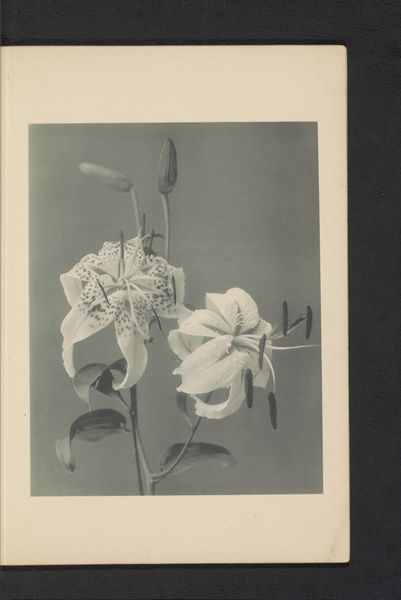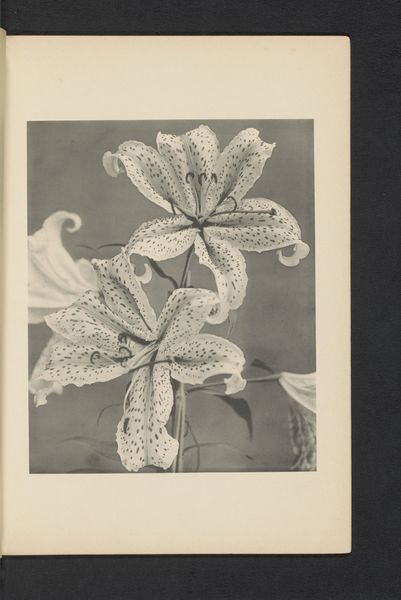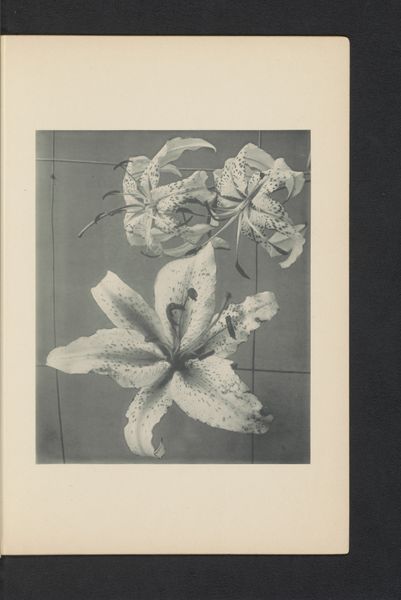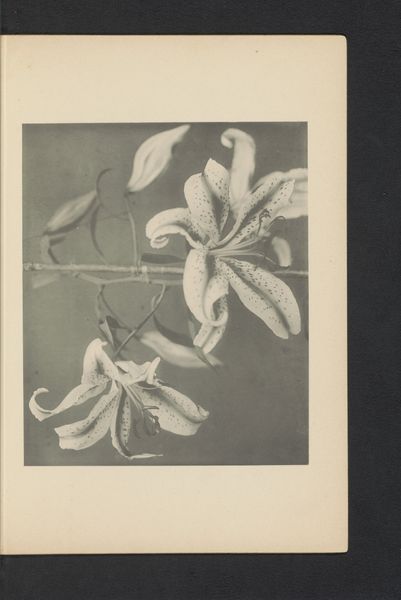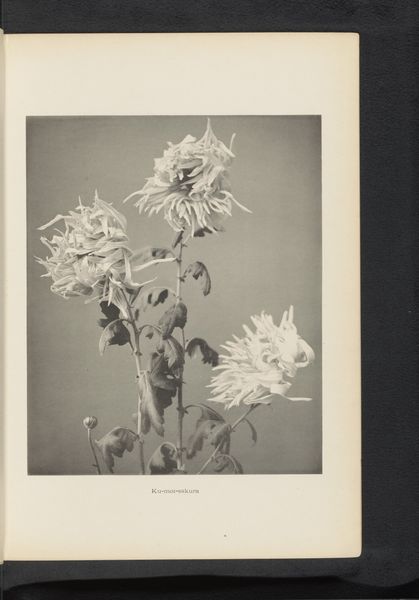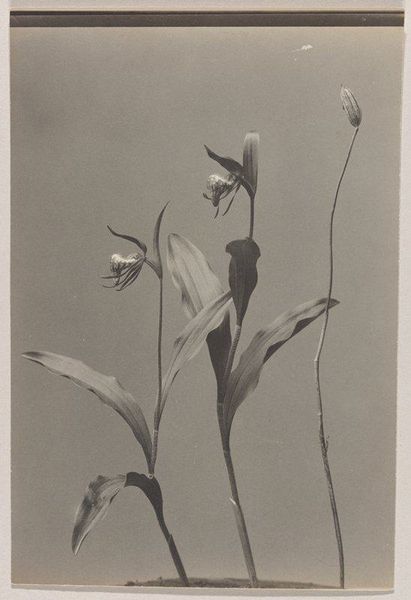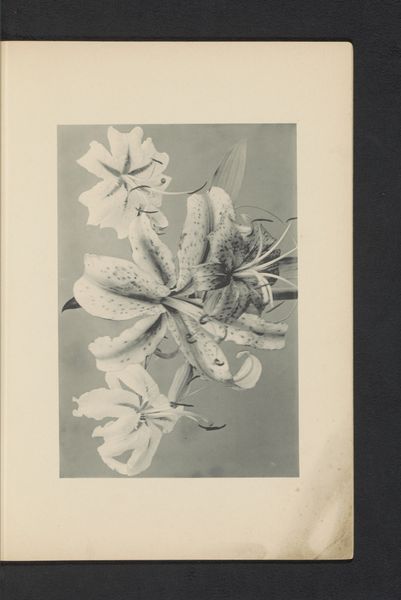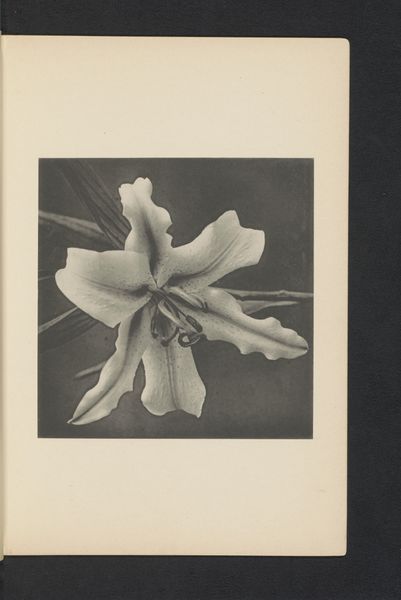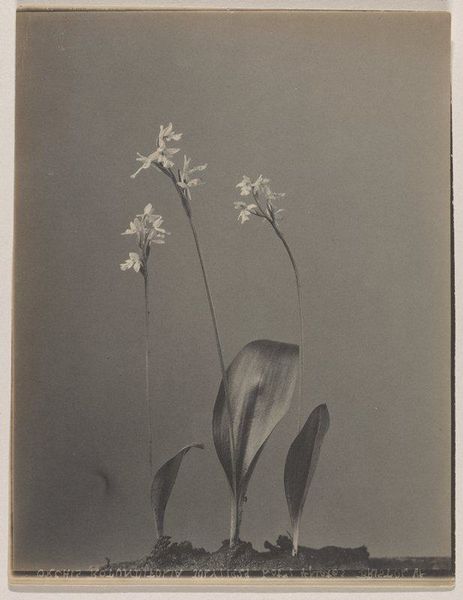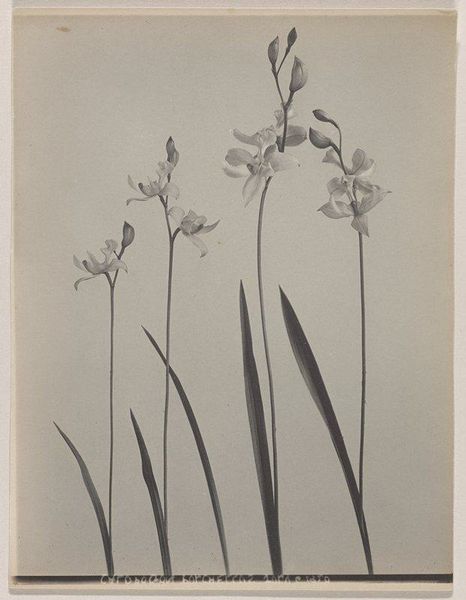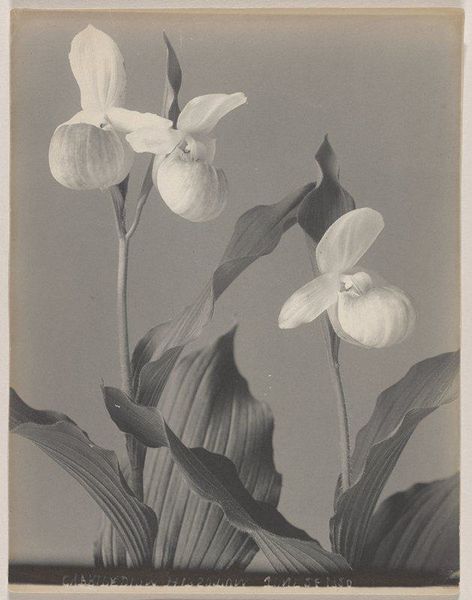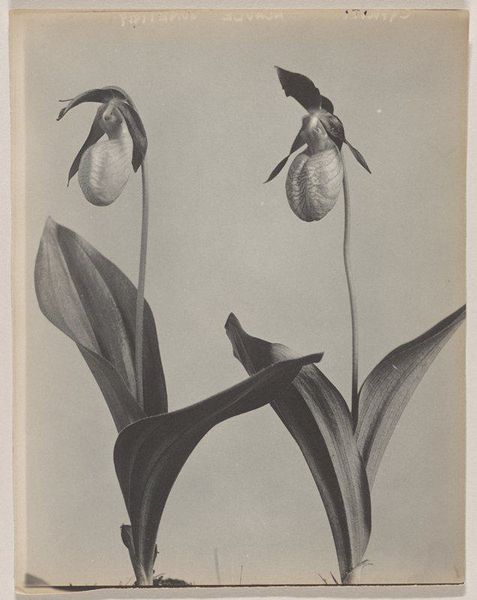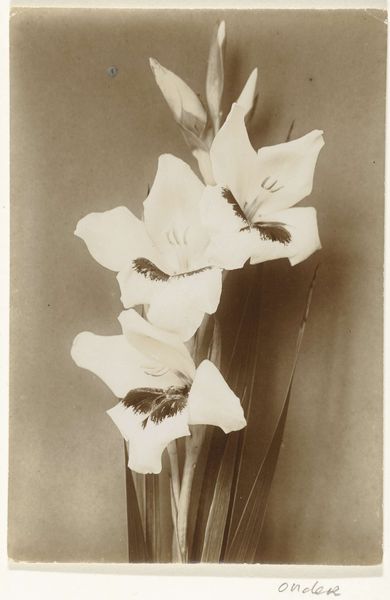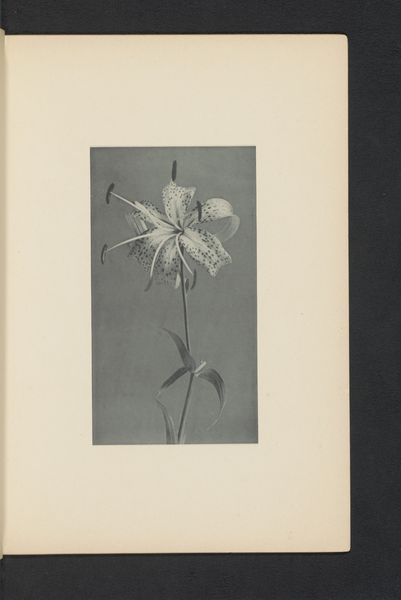
gelatin-silver-print, print, photography, gelatin-silver-print
#
aged paper
#
gelatin-silver-print
#
toned paper
#
light pencil work
# print
#
pencil sketch
#
light coloured
#
personal journal design
#
photography
#
personal sketchbook
#
gelatin-silver-print
#
pen and pencil
#
sketchbook drawing
#
sketchbook art
Dimensions: height 277 mm, width 234 mm
Copyright: Rijks Museum: Open Domain
This photographic print of a Japanese lily was made by Kazumasa Ogawa in the late 19th or early 20th century, using a collotype process. Unlike traditional photography that relies on a negative, collotype employs a glass plate coated with light-sensitive gelatin. This is exposed to a negative, hardened, then inked and printed. The resulting image is incredibly detailed, with a subtle, continuous tone. Ogawa was a pioneer, instrumental in bringing photographic printing techniques to Japan, and elevating photography to the status of art. His choice of the collotype process speaks to a desire for artistic control, as it allowed for meticulous manipulation of tone and texture, bridging the gap between photography and traditional printmaking. The labour-intensive nature of collotype also reflects a commitment to craftsmanship, setting it apart from the mass-produced photographs of his time. By focusing on the delicate details of the lily, Ogawa invites us to appreciate the beauty of the natural world, while also reminding us of the artistry and skill involved in capturing it on paper.
Comments
No comments
Be the first to comment and join the conversation on the ultimate creative platform.
